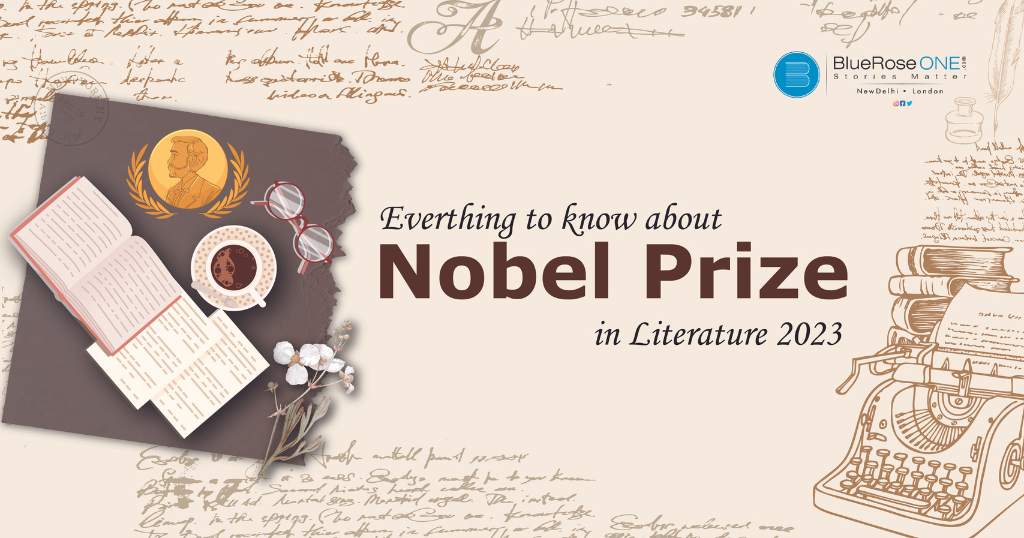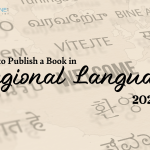For nearly a century, the Nobel Prize in Literature, one of the world’s most renowned and beloved honours, has honoured the written word’s beauty and power. This prize, established by Alfred Nobel, the Swedish inventor, scientist, and philanthropist, recognises extraordinary contributions to the field of literature. Since its foundation in 1901, the Nobel Prize in Literature has recognised the creative talent of innumerable authors whose words, thoughts, and tales have enhanced our lives.
The Genesis of the Nobel Prize in Literature
To appreciate the Nobel Prize in Literature, we must first examine the life and aspirations of its founder, Alfred Nobel. Nobel, who was born in Stockholm, Sweden, in 1833, was a multidimensional man with interests in chemistry, physics, and literature. He was the owner of 355 patents, including the creation of dynamite, which made him wealthy.
However, it was a strange occurrence that formed the groundwork for the Nobel Prize in Literature. Nobel’s premature obituary was published in 1888 with the banner “The Merchant of Death is Dead.”
Read: What is Typesetting: A Complete Guide to its Uses, Definition, and Importance
This obituary, which incorrectly characterised Nobel as a guy who benefited from the development of explosives used in combat, angered him much. It prompted him to consider his legacy.
In his will, Alfred Nobel bequeathed the bulk of his fortune to create the Nobel Prizes, including the one for literature. His aim was to reward those who had contributed significantly to humanity in the fields of physics, chemistry, medicine, peace, and literature. By doing so, Nobel sought to ensure that his wealth would be used for the betterment of humanity rather than for destructive purposes.
The Nobel Prize in Literature: A Legacy of Literary Excellence
The Nobel Prize in Literature is unique among the Nobel Prizes because it recognises not scientific discoveries or humanitarian efforts but the profound impact of words and storytelling. It celebrates the ability of authors to capture the essence of the human experience, challenge societal norms, and inspire change through literature.
The Selection Process for Nobel Prize in Literature
The process of selecting the Nobel Laureate in Literature is a closely guarded secret. Each year, the Swedish Academy, responsible for awarding the literature prize, invites qualified individuals and organisations to submit nominations. These nominations are carefully reviewed and assessed by a committee of experts in the field of literature.
One distinctive feature of the Nobel Prize in Literature is its ability to transcend borders and languages. It recognises the global nature of literature by considering authors from all over the world.
Read: Easy Hacks to Inspire Yourself to Write a Book and Get it Published Globally.
This inclusivity has resulted in a diverse list of laureates, representing a rich tapestry of languages, cultures, and literary traditions.
The Nobel Prize in Literature has a history of recognising literary giants who have left an indelible mark on the world of letters. Some of the most celebrated authors in history have received this prestigious award, including Ernest Hemingway, Gabriel García Márquez, Toni Morrison, and Gabriel Josipovici. These authors, through their works, have explored complex themes such as love, identity, justice, and the human condition.
The Impact of the Nobel Prize in Literature
The Nobel Prize in Literature is not merely a recognition of an author’s past achievements; it is also a catalyst for future endeavors. It serves to introduce exceptional writers to a global audience, amplifying their influence and encouraging further literary exploration. This recognition often leads to increased book sales, the translation of their works into multiple languages, and invitations to literary festivals and events worldwide.
For laureates, the Nobel Prize in Literature is a validation of their life’s work and a testament to the power of literature to effect change. It bestows upon them a responsibility to continue using their words to shed light on important social, political, and cultural issues. The prize not only honours their literary accomplishments but also charges them the duty of advancing the cause of literature and human understanding.
Controversies and Criticisms
Like any prestigious award, the Nobel Prize in Literature has not been immune to controversies and criticisms. One recurrent point of contention is the omission of deserving authors, as only one laureate is selected each year. This limitation often leads to debates over who should be recognised and who has been overlooked.
The Nobel Prize in Literature has also faced controversies related to the political and social affiliations of its laureates. Some argue that the selection process may be influenced by political considerations, leading to the awarding of the prize to authors whose works align with certain ideologies. Such debates underscore the challenging task of balancing artistic merit with political neutrality.
In recent years, the Swedish Academy has grappled with internal controversies, including allegations of sexual misconduct and conflicts of interest. These issues have raised questions about the transparency and integrity of the selection process.
You may also read: What is Upfront Fiction? Definition, Traits and Examples
What happened on Nobel Prize in Literature 2024.
This years Nobel Prize Summit that happened in May 2024 was themed – “Truth, Trust, and Hope” and brought together speakers from various corners of the globe, including Nobel laureates, industry experts, human rights advocates, and tech ethicists. Their shared mission was to confront, raise awareness of, and ultimately combat the significant threat our society is currently grappling with.
Over the course of three days, this event seamlessly combined virtual and in-person sessions. During these gatherings, speakers and panellists took a deep dive into the insidious manipulation tactics employed by both technology and autocratic regimes. However, amid the prevailing darkness, a ray of hope emerged, shining a light on the transformative power of trust.
The Nobel Prize in Literature 2024 has not been awarded yet. It will be announced on Thursday 5 October, 13:00 CEST at the earliest.
Read: Everything to Know About Times Literary Festival (TLF) 2023.
The Nobel Prize in Literature continues to be a beacon of literary excellence, celebrating authors who have touched the hearts and minds of readers worldwide. It recognises the power of literature to transcend boundaries, challenge perceptions, and inspire change.
While it may not be without its controversies, the Nobel Prize in Literature remains a symbol of the enduring importance of storytelling and the written word in our ever-evolving world.
In honouring the creative brilliance of authors, this esteemed award reminds us of the profound impact that literature can have on our lives and the enduring legacy it leaves behind. As we celebrate each year’s laureate, we are not only applauding their remarkable contributions but also reaffirming the enduring power of literature to shape, inform, and transform the world.
The Nobel Prize in Literature, in all its complexities and controversies, remains a testament to the indomitable spirit of human creativity and expression.
You may also read: How to Publish a Book? | Publish Your Book | BlueRoseOne
















